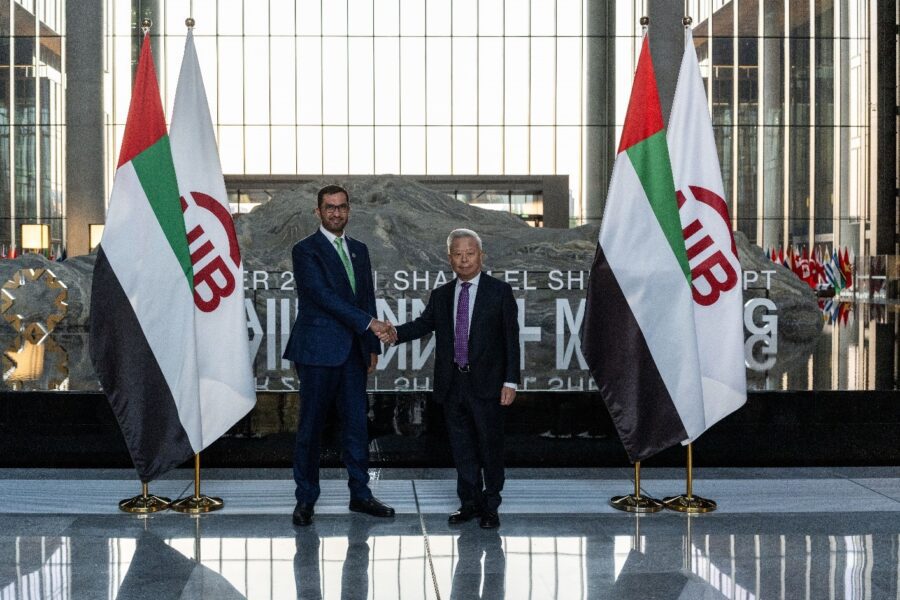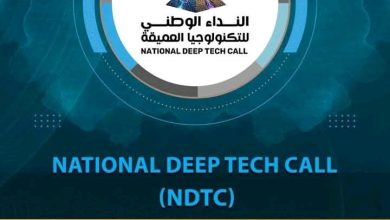AIIB, UAE COP28 Presidency Partnership to Accelerate Energy Transition in Asia

Fathy Elsayeh and Eman Elwasly
The Asian Infrastructure Investment Bank (AIIB) and the COP28 Presidency are collaborating to mobilize much-needed climate investment capital and accelerate clean energy investments to address critical resource gaps in Asia and beyond.
Jin Liqun, AIIB President and Chair of the Board of Directors welcomed Dr. Sultan Al Jaber, COP28 President at AIIB’s headquarters on Oct. 16, 2023 to formalize the partnership.
“This is an important step forward for AIIB in advancing the 2030 agenda and the goals of the Paris Agreement,” said President Jin. “It reflects AIIB’s firm commitment to work with all development partners in creating innovative approaches, unlocking additional capital and delivering value where most needed.”
Under the partnership, AIIB and the COP28 Presidency intend to co-develop innovative financial structures to scale up private and institutional capital mobilization. Among them is the initiation of a new blended finance structure as part of shared efforts to drive capital into green initiatives.
Commenting on the partnership, Dr. Sultan Al Jaber said: “Fixing climate finance is central to our COP28 Presidency. We need to reform the current financial systems to ensure they address climate change, the biggest threat of this century. To do this we need to make capital affordable, accessible, and available. By working together with AIIB, we can find solutions to unlock the necessary finance, attract private capital and support mitigation and adaptation initiatives to build a climate resilient future.”
“With Asia’s growing demand for climate financing, we must hasten our investments and advance new technologies,” added Sir Danny Alexander, AIIB Vice President for Policy and Strategy. “AIIB is committed to supporting investments dedicated to climate action and projects that deliver local environmental improvements.”
By enhancing collaborations, both parties will continue to jointly advocate for improvements in the multilateral development finance architecture and stronger institutional collaboration through operational support and knowledge exchange. Such collaboration reflects a strong commitment to maximize development impact, build greater momentum and achieve more through combined resources, expertise and influence








